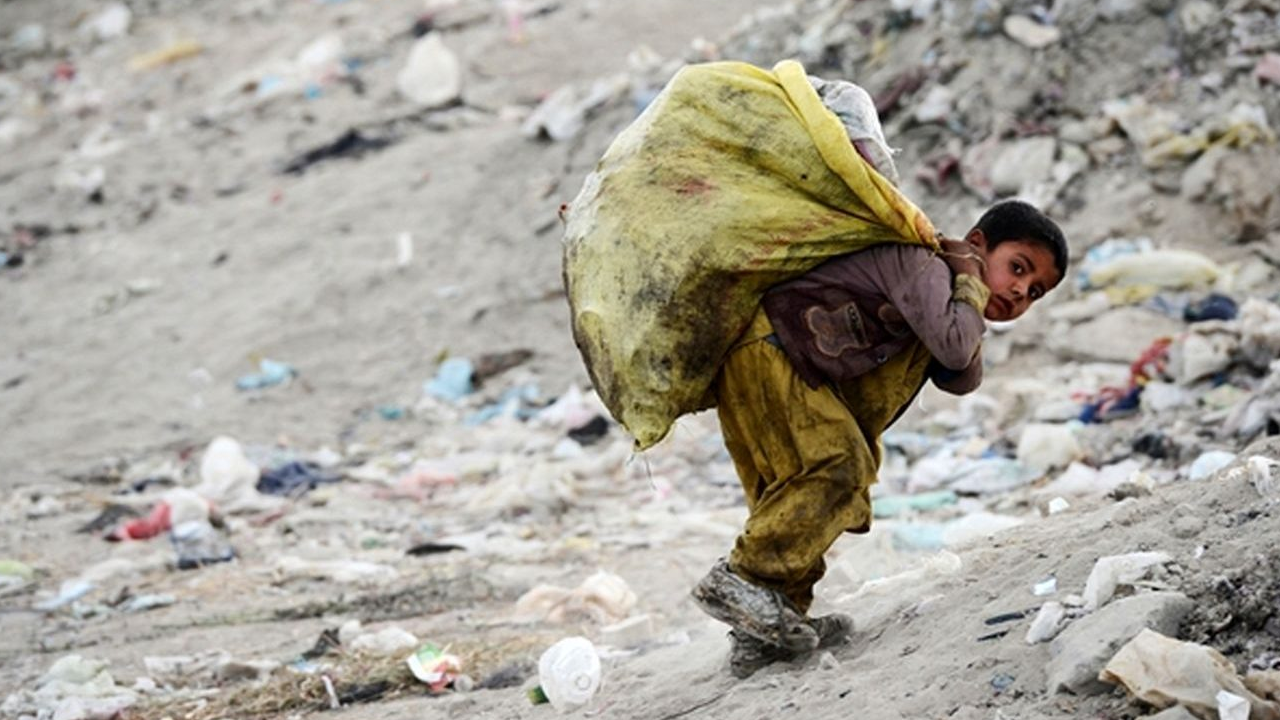Introduction: What is Poverty and How Does it Affect Iran?
keywords: poverty, poverty reduction, Iran poverty, extreme poverty, poverty rate
Extreme poverty in Iran is a worrying and urgent issue that needs to be urgently addressed due to its serious effects on human well-being. Poverty often results in lack of food security, inadequate housing, impure water sources, illiteracy, high child and maternal mortality rates, high unemployment levels, and a feeling of being powerless.
To reduce poverty levels, economy needs to grow to enable more people to make a living. Economic & fundamental institutional reforms can help improve resource utilization and create efficiency in the system, leading to higher incomes and more job opportunities for the underprivileged. National development policies should focus on providing basic necessities to the underprivileged. Microfinance can be utilized to remove obstacles which prevent innovation, entrepreneurship, & small businesses from flourishing. Additionally, it is essential to develop & enhance marketing systems so as to maximize production. It is essential to invigorate the private sector by providing incentives and implementing affirmative actions, like targeted cash transfers. This way, we can ensure social and economic benefits of poverty alleviation initiatives are accessible to those who may otherwise be overlooked.
Poverty alleviation strategies
Iran has the capability to combat poverty, with the right economic and social strategies, proper resource management, investments in modern technology, solid governance and strong leadership with a commitment to prioritize the people who are disadvantaged. All of these components must work together in order for success to be achieved.
Access to basic necessities like education, healthcare, transportation, power supply, soil fertility and clean water is essential for maintaining a life of respect and wellness. These requirements are also fundamental for achieving economic productivity.
Governments in other countries have had success in reducing poverty, and Iran’s policymakers can learn from them to replicate these measures on a larger scale. Strategies such as increasing employment opportunities, providing tuition-free education, and implementing social protection systems can help reduce poverty rate and number of people living in poverty.
Stimulating inclusive economic growth
Economic growth plays an integral role in enabling low-income communities to leverage their resources to boost both production & income. This helps them get out of poverty and meet the necessary needs of their families. In order to reduce poverty levels, economic growth must be inclusive and higher than the population growth. Otherwise, it may not have a significant impact on poverty reduction.
To eradicate extreme poverty, enhancing agricultural production and productivity should be prioritized. This can be achieved by inspiring farmers to use high yielding crops, fertilizers and pesticides.
Technological advancements such as increased irrigation, where water is an issue, can help to make more use of the land and boost agricultural production. Additionally, post-harvesting measures can be implemented to lessen losses in agricultural produce. Making credit more widely available and offering flexible terms that suit the needs of the poor are essential for increased adoption. Furthermore, public resources have to be allocated towards building infrastructure such as roads, power supplies, educational facilities, healthcare centres and water & sanitation systems.
Iran needs to make some changes economically and institutionally in order to draw investors, improve its market competitiveness, optimize resource usage, boost economic growth & create jobs. These reforms will significantly help the country develop in the future.
With the right approach and successful implementation of these reforms, it can help improve governance and reduce the prevalence of corrupt practices and lack of accountability that have resulted in Iran’s weak economic performance. In order to progress, reforms need to be implemented like strengthening land tenure systems to facilitate risk-taking & investment and promoting better governance for combating inclusivity issues, greater transparency and accountability.
By preventing any misuse of public funds and unnecessary expenses, we can make sure that the requirements & concerns of those in need are at the forefront. This would ensure more efficient use of public resources. Achieving macroeconomic stability and contending with structural limitations in order to increase growth is essential; this includes reducing operational costs, decreasing heavy regulatory pressure, as well as incorporating the perspectives of the deprived, women, and young people into decision-making. Also, Iran must overhaul its tax regulations to make them more efficient & beneficial to the poorer classes of society. This will help alleviate poverty & create a better economy.
Additionally, Iran should promote the development of microfinance institutions and programs. This will remove any financial constraints and supply much-needed credit to small businesses that often don’t have access to formal financial services.
Beyond the financial advantages, small self-help & microcredit groups can also add important social value. They create an environment of exploration, fostering the development of skills, entrepreneurship & idea exchange. This can contribute to increased knowledge and empowerment for those involved, and greater accountability by the group members.
For a better economic development in Iran, it is important to improve the marketing systems. The most effective way to reduce poverty is to enhance the capability of low-income families to produce more goods and services.
Establishing efficient marketing systems is an essential tool for the impoverished to increase their earnings. This allows them to send their goods to various markets cost-effectively, thus gaining a higher income.
Iran needs to diversify their export markets and explore different strategies to enhance their marketing. This could be a beneficial step towards helping farmers who are going through difficult times due to factors like crop damage, low commodity prices and thus low profits and incomes, and exploitation by middlemen. Such an effort would provide them with the financial security they need.
It is imperative for Iran to introduce cash/income transfer initiatives. When fighting poverty, it is essential to take into account those who are unable to actively engage in regular economic activities, as they may not reap the same rewards of economic growth as others.
Different types of people fall into the poverty category, amongst them are the elderly, those with a chronic illnesses or disabilities, families with young children, and those who have had to flee domestic violence. These individuals must be provided necessary aid and assistance to ensure they live dignified lives. In order to address poverty, it is necessary to introduce special affirmative actions that will help transfer incomes to the disadvantaged groups and meet their basic needs. Such steps are integral for creating a more equitable distribution of resources and reducing poverty overall.
Families living in poverty-stricken areas often rely on their kids for labour and informal businesses. This leaves little or no room for children to attend school. Income transfer programs can significantly help these families by providing them with financial relief and make it easier for their children to get an education. Investing in education is an essential element to empower children and grant them more employment opportunities in the future, leading to a decline of poverty in the long run. This investment can be seen as providing a significant contribution to poverty reduction.
It is essential to realize that cash transfer programs are not just benefits but investments in households facing poverty, malnutrition and other health issues. It can be the only hope for these households to break away from the vicious cycle of chronic poverty.
Unfortunately, poverty can’t be tackled until the authorities shift their focus to meeting the needs of the destitute instead of sustaining religious institutions and supporting terrorists. None of our alleviation strategies will be effective unless that happens.
Iran’s new government needs to shift their focus from its political system to prioritizing poverty reduction across the country. This should be their main priority, in addition to working on democracy and bettering foreign relations.
Until there is a large gap in society both in the form of education & wealth, democracy will not solve the problem as it is most likely the rich and the group who use most violence will control the power and that may cause even bigger exploitation of the poor.
It is a wrong assumption to credit democracy for the development of the west, social science cannot be explicated with a simplified reality and that social phenomenon should be studied in its original context. The main factors in west have been functioning welfare state, economy improvement and institutional reforms. As even in the west we have not been able to achieve full democracy yet. It would be false to believe that in the west everyone has equal opportunity to affect the decision-making even though that may be the goal but not even west is there yet.
However, democracy is often thought of as the best form of government, but it has its flaws. If there is not a proper governing system with separation of power, free media, controlled by people and few strong political parties in place, democracy can go wrong. Remember in 1933, Adolf Hitler and his Nazi Party came to power in Germany through a democratic election. Despite their extremist views and policies, they were able to win the majority of votes and take control of the country. This raises questions about how a majority can be swayed by an extreme political party, and how democracy can be manipulated for sinister purposes. That is why, it is always important to create a system to safeguard individual rights before groups and majority rights.
However post-revolution Iran needs a non-political organisation who safeguard democracy. The parliament should decide this organisation’s responsibility and formation, and this organisation only answers to parliament. But main responsibility should include to safeguard the separation of power between Judiciary, Executive branch, Legislative Power and Freedom of media. The name of this organisation is not important but its function is vital for the implementation of the change specially for Iran.
Further to improve transparency and reduce government misuse of monetary policies, the central bank also as non-political organisation should completely be move under the control of parliament and be separated from executive branch with the main responsibility to stabilize inflation.
The military and armed forces should also be moved under the executive branch. The executive branch should also be mainly a non-political organisation and purely responsible for execution and management of the country and should be largely made up of career professionals recruited based on their capabilities and merits, not any political affiliations. They stay in their roles even after the change of elected officials, providing stability and continuity over time.
The fact is Islamic Republic has already collapsed and if the world doesn’t assist with this transition Iran will also collapse and then… we all have much bigger problems.
#####
Special thanks to Mr Babak Emamian for his mentorship during this difficult time.
Recommended reading:
- Does Decentralization Enhance Service Delivery and Poverty Reduction? (Studies in Fiscal Federalism and State-local Finance series) by Ehtisham Ahmad & Giorgio Brosio
- Inclusive Development and Poverty Reduction (International Research on Poverty Reduction) by Changsheng Zuo, Chengwei Huang, Xiaojun He, Xiaolin Wang, Fang Li, and Xu Chen
- Water Use and Poverty Reduction by Md. Fakrul Islam
- Factfulness: Ten Reasons We’re Wrong About the World – And Why Things Are Better Than You Think. By Hans Rosling, Ola Rosling and, Anna Rosling Rönnlund









